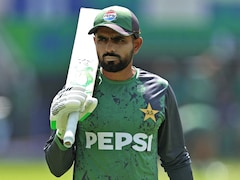ARTICLE AD BOX

AI image for representative purposes
The Delhi High Court recently upheld a Family Court decree granting divorce to a husband on the grounds of mental cruelty under Section 13(1)(ia) of the Hindu Marriage Act, 1955.The couple, married in March 1990, had a son in 1997. Over time, the husband alleged that his wife’s conduct during the marriage had become persistently cruel.
He claimed she often left the matrimonial home for extended periods without consent, refused marital intimacy from 2008 onwards, pressured him and his family to transfer property, and filed multiple retaliatory criminal complaints after he sought divorce in 2009.
He also alleged deliberate alienation of their son and a lack of concern for his elderly parents.The wife, in her appeal, contended that the rift in the marriage was caused by the husband and his family, that her stays at her parental home were occasional, and that she had never sought to abandon the marriage.
She argued that the Family Court had wrongly attributed withdrawal from marital relations solely to her.However, the Delhi High Court upheld the Family Court’s findings, observing that the wife’s prolonged refusal to cohabit, denial of marital intimacy, repeated absences from the matrimonial home, retaliatory FIRs, alienation of the child, and indifference to in-laws collectively constituted mental cruelty, making it impossible for the husband to continue the marriage, according to an ET report.
Mental cruelty: What it means
Under Section 13(1)(ia) of the Hindu Marriage Act, a marriage can be dissolved if one spouse treats the other with cruelty, making it impossible for the aggrieved party to continue the relationship. Mental cruelty arises from prolonged emotional anguish, humiliation, frustration, or neglect caused by the other spouse. While mere coldness or occasional disputes do not amount to cruelty, persistent denial of marital intimacy, repeated absences from the matrimonial home, threats, harassment, indifference toward family members, and deliberate alienation of a child can collectively constitute mental cruelty, making cohabitation intolerable.In this case, the Delhi High Court observed that the wife’s prolonged refusal to cohabit, persistent denial of conjugal relations, repeated absences, retaliatory FIRs, alienation of the child, and indifference to in-laws collectively demonstrated a sustained pattern of mental cruelty. Citing Supreme Court precedents, the court noted that such conduct made it impossible for the husband to continue the marriage.

 2 hours ago
4
2 hours ago
4









 English (US) ·
English (US) ·